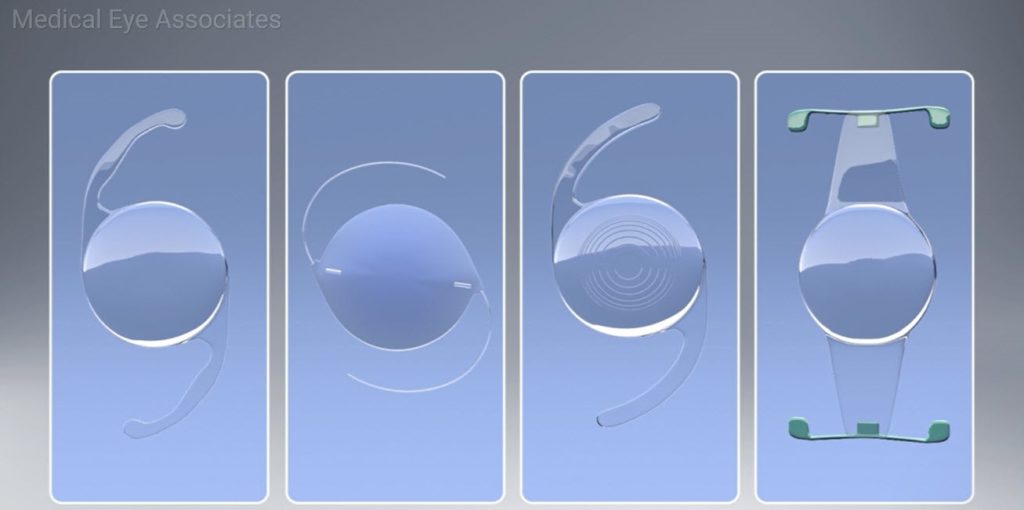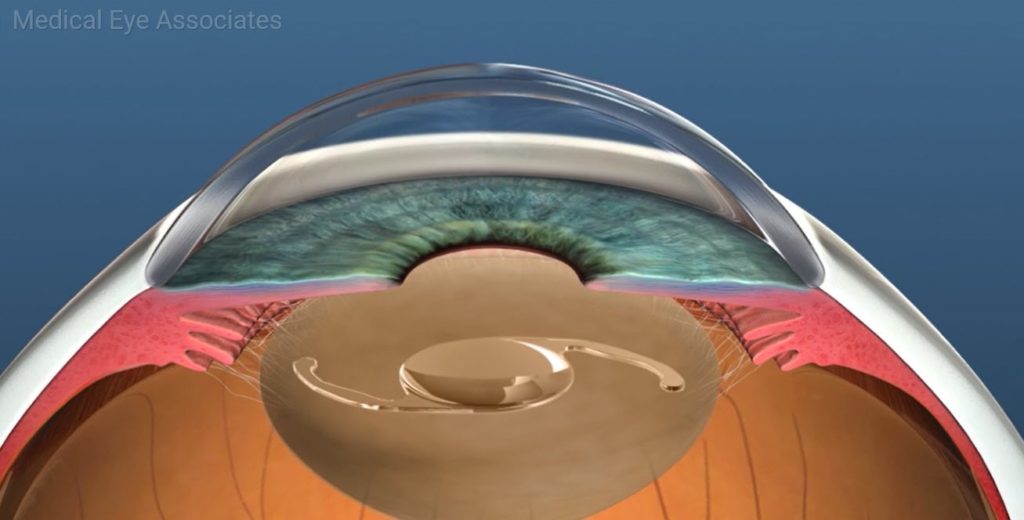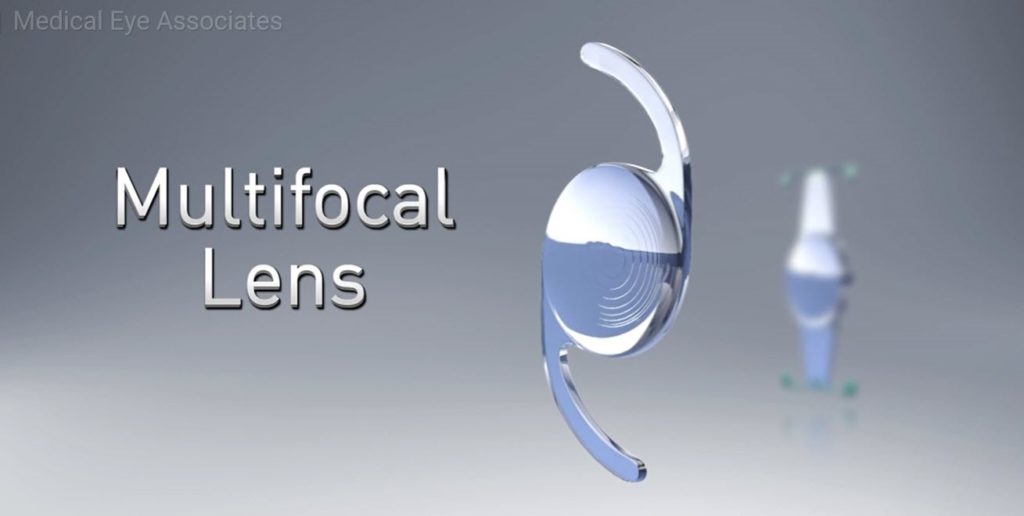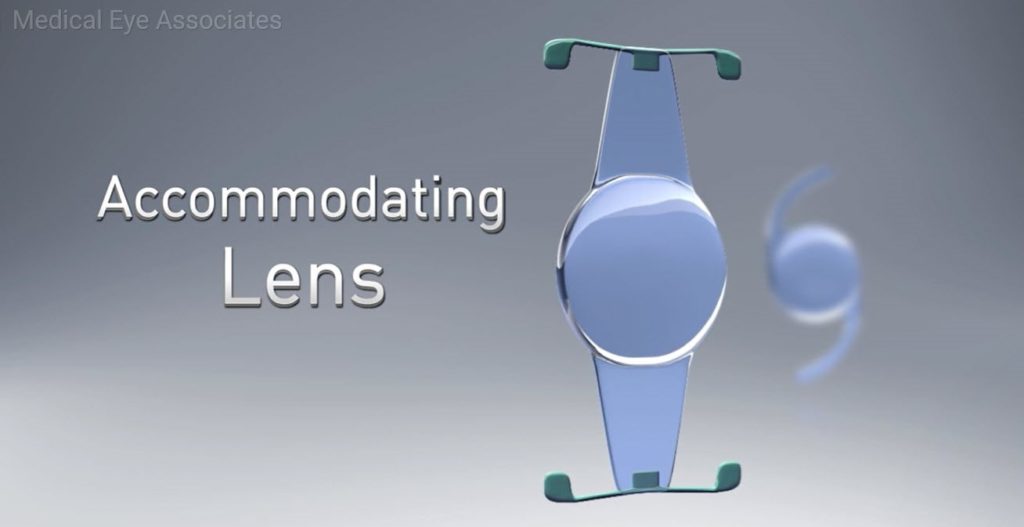Cataract Treatment by Dr. Mont Cartwright in Kissimmee
Preparing For Cataract Surgery And Choosing An IOL
Before the cataract surgery, a comprehensive eye exam is performed to check the overall health of your eyes, evaluate if you are a candidate for cataract surgery, and identify any risk factors.
A refraction test will be performed to accurately determine the amount of nearsightedness, farsightedness, and astigmatism you have prior to surgery. Additional measurements of your eyes will be taken to determine the curvature of your cornea and the length of your eye.
Refraction test.
These measurements are essential to help Dr. Cartwright select the proper power of the intraocular lens and give you the best vision possible after surgery.
How to Choose the Right Lens
There are many types of IOLs to choose from for your cataract surgery, depending on your specific needs. In addition to IOLs that correct nearsightedness and farsightedness.
If you don’t mind wearing glasses after cataract surgery, a mono-focal lens implant usually is used. Often, only part-time use of reading glasses is needed after cataract surgery with mono-focal IOLs. But if prescription eyeglasses are needed (which often is the case if you only need cataract surgery in one eye), your eye doctor typically will prescribe new glasses for you approximately one month after surgery.

Lens choices for cataract surgery.
If you like the idea of being less dependent on glasses after cataract surgery, one way to correct presbyopia and reduce your need for reading glasses is to have your cataract surgeon adjust the power of one of your mono-focal IOLs (assuming you have cataract surgery performed in both eyes) to give you a mono-vision correction, similar to mono-vision with contact lenses.
Another option is to choose one of a variety of advanced presbyopia-correcting IOLs to improve your reading vision without sacrificing your distance vision. Presbyopia-correcting IOLs include accommodating IOLs and multifocal IOLs; both types are designed to provide a greater range of vision after cataract surgery than conventional mono-focal IOLs.

Lens choices for cataract surgery.

Accommodating Lens with Far Focus Explained.

Accommodating Lens with Near Focus Explained.
Be aware that not everyone is a good candidate for these premium IOLs, and choosing a presbyopia-correcting IOL will increase the out-of-pocket cost of your cataract surgery since the added cost of these advanced lens implants is not covered by Medicare or other insurance plans.
If you have any questions or concerns about cataract surgery, be sure to discuss them with our surgery counselors prior to signing “informed consent” documents authorizing surgery.
Also, discuss with Dr. Cartwright all medications you are taking, including non-prescription (“over-the-counter”) formulations and nutritional supplements. Some medications and supplements can increase your risk of cataract surgery complications and might need to be discontinued prior to surgery. Ask Dr. Cartwright for details.





